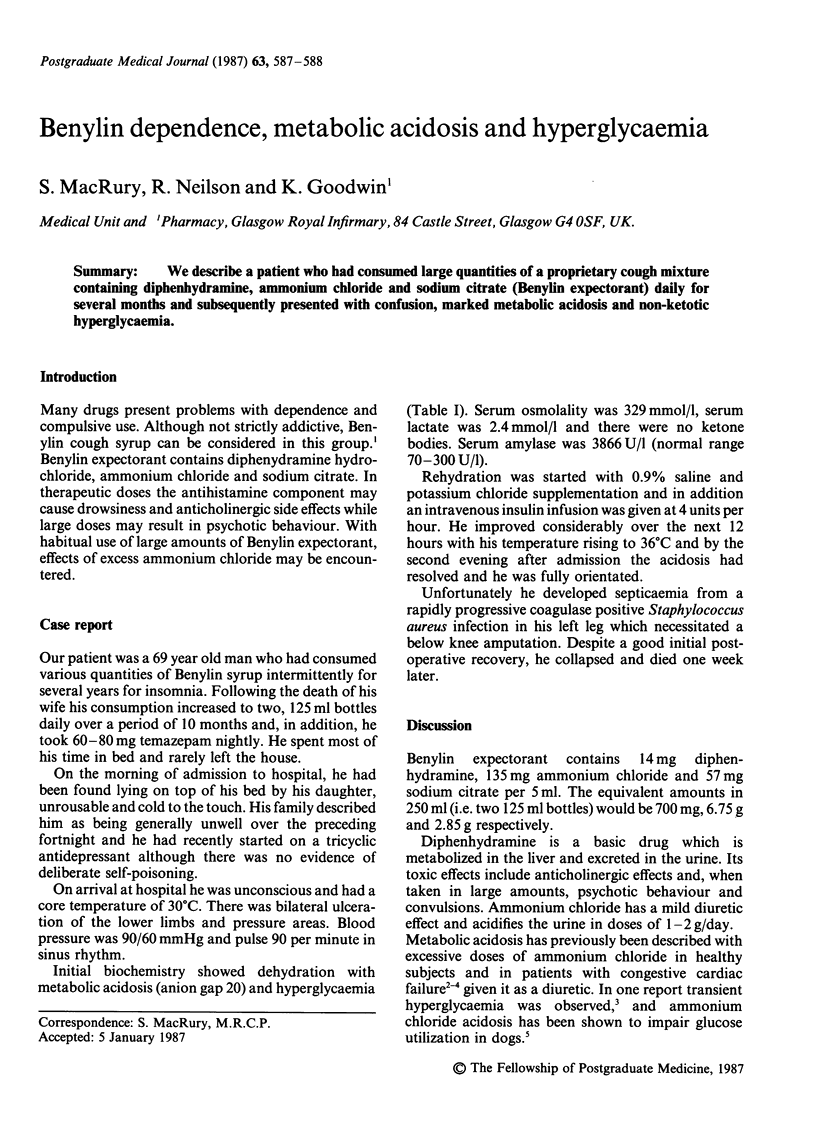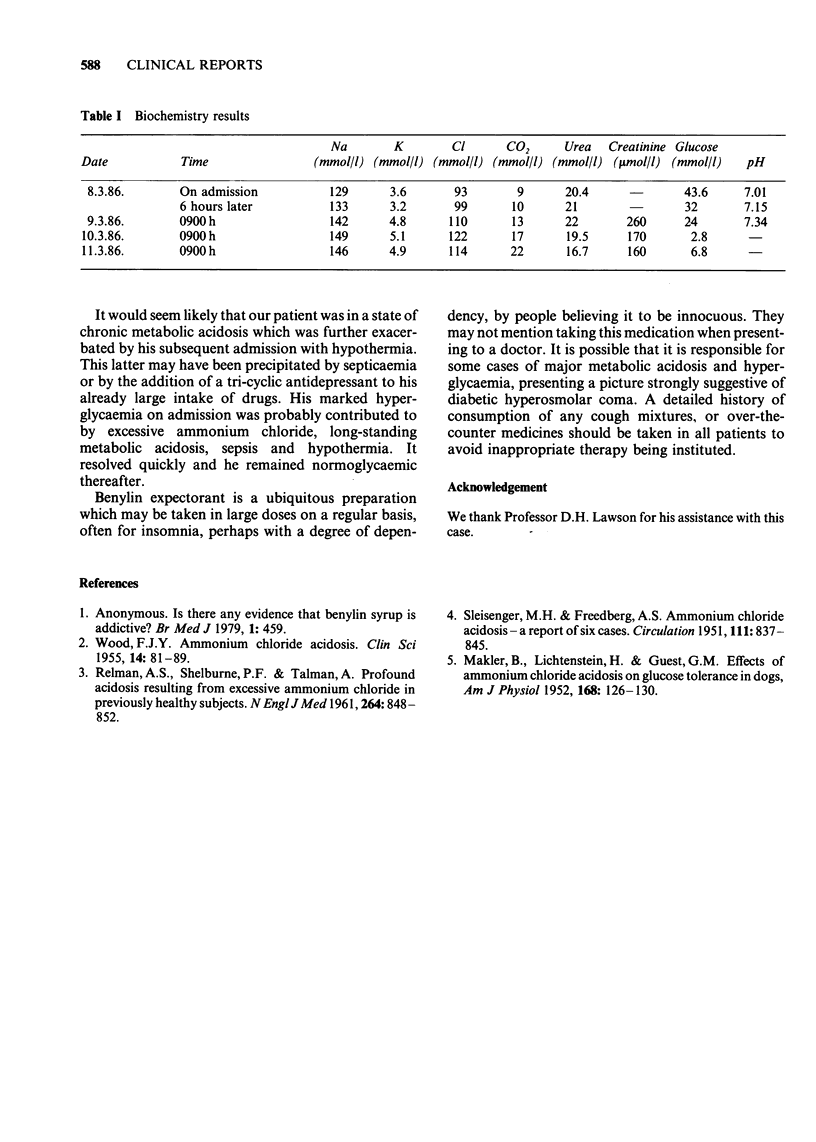Abstract
We describe a patient who had consumed large quantities of a proprietary cough mixture containing diphenhydramine, ammonium chloride and sodium citrate (Benylin expectorant) daily for several months and subsequently presented with confusion, marked metabolic acidosis and non-ketotic hyperglycaemia.
Full text
PDF

Selected References
These references are in PubMed. This may not be the complete list of references from this article.
- MACKLER B., LICHTENSTEIN H., GUEST G. M. Effects of ammonium chloride acidosis on glucose tolerance in dogs. Am J Physiol. 1952 Jan;168(1):125–130. doi: 10.1152/ajplegacy.1951.168.1.126. [DOI] [PubMed] [Google Scholar]
- RELMAN A. S., SHELBURNE P. F., TALMAN A. Profound acidosis resulting from excessive ammonium chloride in previously healthy subjects. A study of two cases. N Engl J Med. 1961 Apr 27;264:848–852. doi: 10.1056/NEJM196104272641703. [DOI] [PubMed] [Google Scholar]
- SLEISENGER M. H., FREEDBERG A. S. Ammonium chloride acidosis; a report of six cases. Circulation. 1951 Jun;3(6):837–845. doi: 10.1161/01.cir.3.6.837. [DOI] [PubMed] [Google Scholar]
- WOOD F. J. Ammonium chloride acidosis. Clin Sci. 1955 Feb;14(1):81–89. [PubMed] [Google Scholar]


